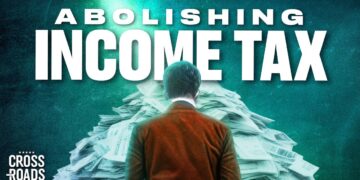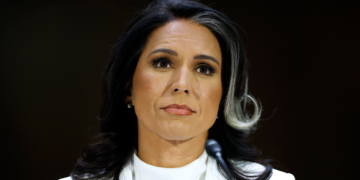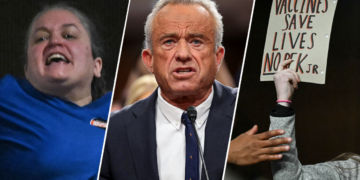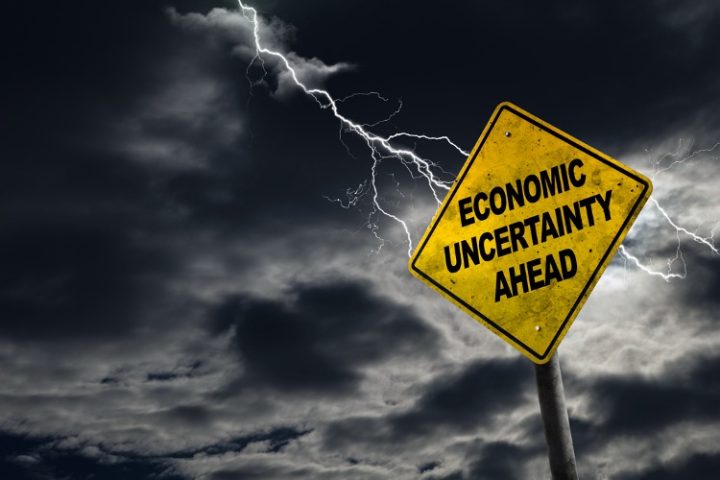
With holiday spending in the United States to be an expected $957.3 billion, driving what appears to be a growing economy, most Americans are experiencing the opposite, saying the economy is in a downturn, with a majority calling it a “silent recession,” according to a new survey from Bankrate.
“Almost 3 in 5 (or 59 percent) of adults feel like the U.S. economy is in a recession, with 31 percent strongly agreeing,” according to the survey.
Bankrate shared that “most adults agreed the economy was in a downturn, regardless of income, age, region, gender and race. Almost the same amount of those in the lowest-income households (60 percent of those earning under $50,000 annually) say they feel like the U.S. economy is in a recession as those at the opposite end of the spectrum (61 percent for those earning $100,000 or more annually).”
The downturn that is affecting the economy is apparent, with the latest data on consumer inflation showing prices rising quickly, especially for rents, restaurants, and auto insurance. This has led many Americans to spend beyond their means using their credit cards to make ends meet. In fact, consumer debt reportedly is at an all-time high of $17.3 trillion.
Consumer debt should be driving the talk of a “recession,” but a bullish stock market and low unemployment rates are giving the impression, at least on the surface, that the economy is doing well.
However, for many Americans, the fiscal reality is that the mixed economic indicators are hiding a “silent recession.” According to GoBankingRates, a “silent recession refers to economic downturns that may not grab headlines like a full-blown recession but have significant impacts on the financial well-being of many, especially middle-class Americans.”
Petra Gonzalez, who leads operations at a local deli just outside of Lansing, Michigan, shared her observations with Bankrate on the effects of the silent recession:
“I call it a quiet recession because not many people are talking about it, but everyone is feeling it,” she says. “I interact with a lot of different people from different walks of life, and even people who are making $75,000 to $100,000 a year are saying, ‘Everything is going up. I want to do this, but I can’t because my money is going to my bills or paying back my credit cards.’ I feel like it doesn’t really matter the status of your financials. It’s just bad, and everyone is feeling it.”
Fueling Americans experiencing the silent recession is how inflation has kept people from saving money for an emergency. A Bankrate poll published in October shared that “Inflation and having too many expenses are to blame. More than half (57 percent) of those who haven’t boosted their emergency savings or have no such savings say inflation is keeping them from saving more right now, while 38 percent say the reason they’ve not increased savings is they have too many expenses.”
While many might be feeling the pinch from inflation and the effects of the silent recession, government officials and many economists won’t declare a recession until the country suffers two consecutive quarters of economic contraction, or negative GDP growth, which was last recorded in the first half of 2022.
“Most Americans aren’t looking at the economy in terms of the definition of recession that economists or business leaders would use,” said Mark Hamrick, the senior economist analyst at Bankrate. “They look at the performance of the economy as they perceive it relative to their own personal situations.”
However, as Market Insider reported, “signs of a recession are starting to build.” Briley Wealth’s chief investment strategist, Paul Dietrich, noted, “The stock market’s 20% rally this year is one such warning, he said, as the S&P 500 has typically posted outsized gains in the months leading up to a downturn. That was the case prior to the 2001, 2008, and 2020 recessions, when stocks rallied sharply before the economy began contracting.”
Only time will tell if the “silent recession” gains a voice. But whatever you want to call it, many Americans are feeling its effects and can only hope it doesn’t become their new normal.
Shop For Night Vision | See more…
Shop For Survival Gear | See more…
-
Sale!

Portable Mini Water Filter Straw Survival Water Purifier
Original price was: $29.99.$14.99Current price is: $14.99. Add to cart -
Sale!

Mesh Shooting Hunting Vest with Multi Pockets
Original price was: $59.99.$39.99Current price is: $39.99. Add to cart -
Sale!

Japanese 6 inch Double Edged Hand Pull Saw
Original price was: $19.99.$9.99Current price is: $9.99. Add to cart


















































